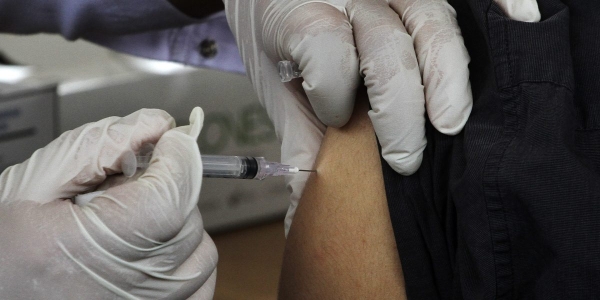
US regulators authorized a second round of omicron-targeted boosters for individuals older than 65 and those with weakened immune systems.
The Food and Drug Administration said Tuesday that older adults can get another updated Covid-19 booster as soon as four months after their first bivalent booster dose, while immune-compromised people can get one at least two months after their last dose. Additional doses for those who are immune-compromised can be administered at the discretion of their health-care provider, the FDA said.
The agency is also simplifying the vaccination schedule by authorizing the bivalent shots made by Pfizer Inc. and Moderna Inc. to be used for all Covid vaccine doses and has phased out the vaccines that were used at the beginning of the pandemic. A group of advisers to the Centers for Disease Control and Prevention are meeting Wednesday to discuss the FDA’s changes.
Adults, children and infants as young as six months can get an updated booster shot as soon as two months after their last Covid vaccine. The latest shots were reformulated last year to target the BA.4 and BA.5 strains of omicron that were dominant in the fall. Only 17% of those eligible have received an updated booster dose, according to data from the CDC. About 43% of adults 65 and older have gotten the latest booster, according to the data.
Health officials plan to meet each June to review which strains of the virus should be included in Covid shots to be deployed no later than September of the same year. In January, advisers to the FDA also voted to standardize Covid vaccines, so that all doses are formulated to target the same strains of the virus.
During a briefing with journalists on Tuesday, Peter Marks, director of the FDA’s Center for Biologics Evaluation and Research, said the agency is keeping a close eye on two new omicron subvariants, called Arcturus and Hyperion, which will be a topic of discussion during the upcoming June meeting.
That meeting will also include discussion on the cadence of future vaccination and whether it should mirror annual flu shots.
The aim is “to try to protect as many people during the season in which respiratory viruses tend to wreak havoc, which is fall to winter months of the year,” Marks said.
Marks said at a recent conference in Washington that the US is working with governments across Europe, the Middle East and Africa to harmonize strain selection for Covid vaccines as closely as possible.






